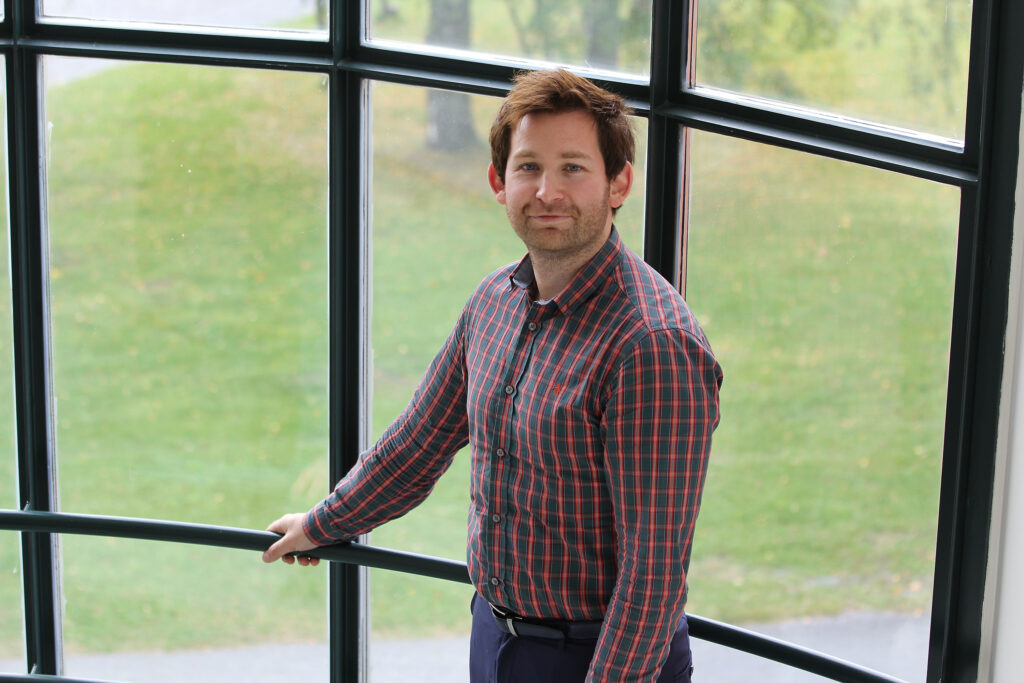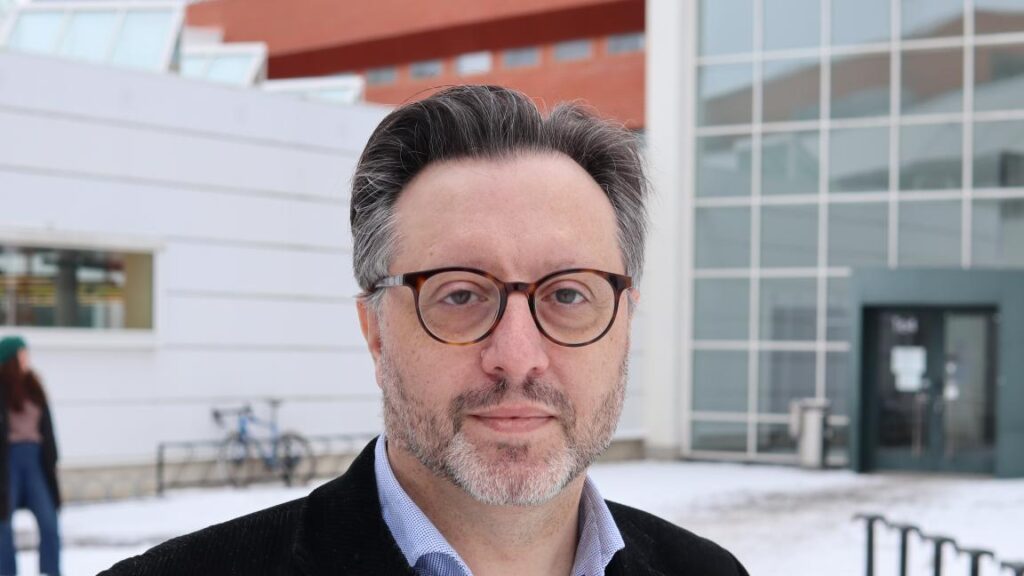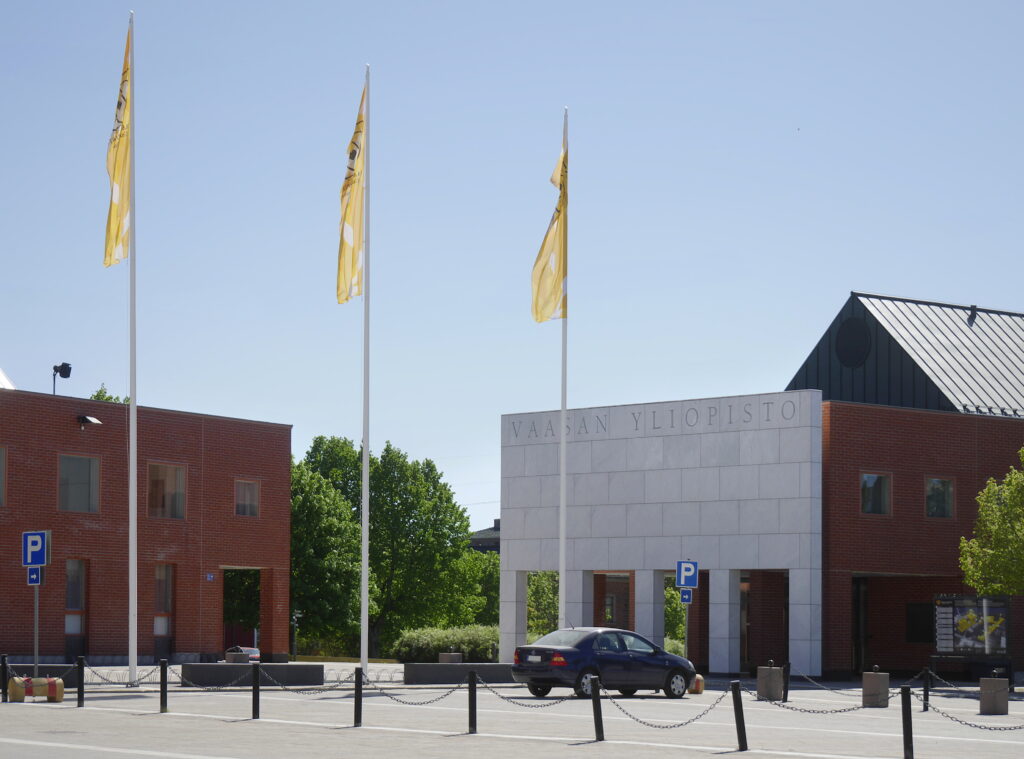The University of Vaasa strengthens its high-quality research in banking and finance by recruiting more experts. One of the latest appointments has been Timothy King, who started as Professor of Finance this autumn. King says that he wants to develop research and other collaboration within the university and strengthen the university’s brand as an international research university.
Timothy “Tim” King initially found about the job opportunity at the University of Vaasa through a former colleague who now works at the university’s research platform, InnoLab. King learned more about the university through his contact and a couple of other research partners he knew in Vaasa and Lappeenranta.
I knew that the research is of high quality here and that you have a strong cluster of researchers in my exact area of expertise, particularly in corporate finance, banking and corporate governance – which are my main areas of research. So, I saw potential synergies here.
A job at a university in a remote location up north didn’t bother him at all.
Moving to a different country and environment appealed to my sense of adventure. I had never previously lived in another country – if you don’t count Wales. However, I have always enjoyed travelling and exposing myself to new cultures and experiences. You get different perspectives visiting other places.
Professor King had no prior experience of Finland or Vaasa. He visited briefly last January, in the middle of the coldest and snowiest winter on record, which gave him some sort of expectations of how it might be later in the year.
King says that Vaasa in many ways reminds him of Bangor, North Wales – a small, scenic and student-focused city on the coast with approximately 65,000 people.
I come from quite a small village outside Cambridge in England, so I naturally feel more comfortable in smaller towns and cities, especially close to nature and the countryside, than I do in, say, central London, where you cannot really travel anywhere without encountering thousands of people on a daily basis.
Research on banks in financial distress
Previously, King worked as a senior lecturer in finance, banking and innovation at the University of Kent, where was also the director of the Centre for Quantitative Finance. Before this, he taught corporate finance and commercial banking at Leeds University Business School.
At Bangor University, he obtained his PhD, in which he examined the efficacy of corporate governance in banks and non-banks. So far, his research has focused on related themes. Most recently, he has been finalizing a paper that looks at whether ESG (environmental, social and corporate governance) factors are relevant factor for the prediction of bank financial distress.
There are traditional factors, like profitability or long-forming loans, that can indicate whether the bank is about to fail soon. And then, we essentially add environmental, social and governmental factors to these prediction models to try to see whether they have some predictive capability in addition to the traditional factors.
Businesses and markets driven by sustainability
Sustainability has become an increasingly larger part of Professor King’s research scope. This includes research in sustainable banking as well as on the impact of climate scenarios on the financial sector and the economy.
We are currently going through a period where the climate risk or ‘the climate action failure’ is, according to the World Economic Forum, the biggest long-term threat to humanity and the planet. It is the factor that is likely to be the major area of impact for institutions over the next decade. My future research is designed to focus on this area.
Professor King has an interesting project with Birkbeck, University of London, where they look at a new piece of legislation that makes it mandatory for large firms to report their non-financial information on climate-related risks and opportunities. The United Kingdom is the first of the G20 countries to make this guideline mandatory.
We are looking at the impact that this mandatory reporting disclosure will have on different firms and their supply chain. This could have quite a significant impact beyond academia, because we are investigating what happens in one country after a new piece of legislation versus countries where it is purely up to individual institutions to comply with that recommendation.
Improving accountability for how companies operate and how they potentially damage the environment through emissions and other activities is important for achieving Net Zero and, more broadly, for saving the planet.
“It is important to address the behavior of individual firms, as it is the only way to cut emissions globally,” Tim King says.
According to Professor King, there are still plenty of global issues besides climate risks that will affect markets now and in the near future: the war in Ukraine, inflation, and the energy crisis, to name a few.
It is hard to make any long-term implications. Generally, we have a pre-movement toward more nationalism in countries and trade has become more distorted, so this could affect trade imbalances and transmission risks between different countries.














